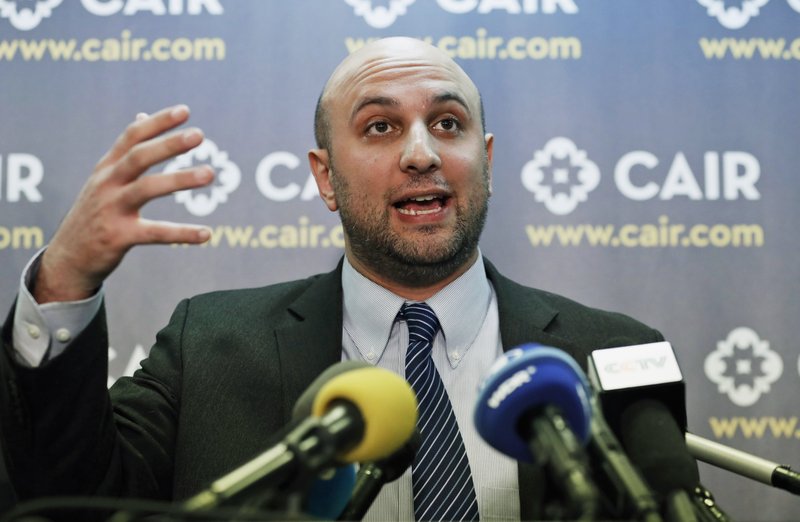FALLS CHURCH, Va. -- The federal government has acknowledged that it shares its terrorist watch list with more than 1,400 private entities, including hospitals and universities, prompting concerns from civil libertarians that those mistakenly placed on the list could face a wide variety of hassles in their daily lives.
The government's admission that it shares the list so broadly comes after years of insistence that the list is generally not shared with the private sector.
Gadeir Abbas, a lawyer with the Council on American-Islamic Relations, which has filed a constitutional challenge to the government's use of the watch list, called the government's admission shocking.
"We've always suspected there was private-sector dissemination of the terror watch list, but we had no idea the breadth of the dissemination would be so large," Abbas said.
The watch list is supposed to include only those who are known or suspected terrorists but contains hundreds of thousands of names. The government's no-fly list is culled from a small subset of the watch list.
The government's admission comes in a class-action lawsuit filed in federal court in Alexandria, Va., by Muslims who say they regularly experience difficulties in travel, financial transactions and interactions with law enforcement authorities because they have been wrongly added to the list.
Abbas said now that the government has disclosed how many private entities receive access to the Terrorist Screening Database, the official name of the watch list, it now needs to explain exactly which private entities are receiving it and what they're doing with it. He's asked a judge to require the government to be more specific. A hearing is scheduled for Friday.
"Are universities taking [Terrorist Screening Database] status into account in making admission or disciplinary decisions? Are Inova Alexandria Hospital's building security personnel screening visitors against the [database] and denying entry to listees? Is Motorola screening its software engineers who work on cellular infrastructure equipment against the [database] and firing listees? Plaintiffs have no idea," Abbas and co-counsels Lena Masri and Carolyn Homer wrote in a brief submitted Friday.
In depositions and in court hearings, government officials had denied until very recently that the watch list compiled by the FBI's Terrorist Screening Center is shared with private entities. At a pretrial hearing in September, government lawyer Dena Roth told U.S. District Judge Anthony Trenga that the Terrorist Screening Center "does not work with private partners, and that watch list status itself ... is considered law enforcement sensitive information and is not shared with the public."
Despite that assurance, the judge ordered the government to be more specific about how it disseminates the watch list. Trenga said the plaintiffs are entitled to the information to try to prove their case that inclusion on the list causes them to suffer "real-world consequences."
In response to Trenga's order, Terrorist Screening Center Deputy Director of Operations Timothy Groh filed a written statement earlier this month acknowledging that 1,441 private entities have received permission to access the watch list. Groh said those private entities must be in some way connected to the criminal justice system. He cited police forces at private universities, hospital security staff and private correctional facilities as examples.
The FBI did not respond to requests for comment.
A Section on 02/20/2019
